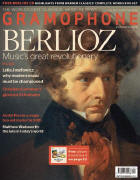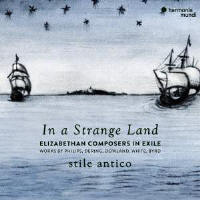Texte paru dans: / Appeared in: |
|
|
Outil de traduction (Très approximatif) |
|
|
Reviewer:
Edward Breen Exile, for Edward Said, was not only banishment but a crucial separation from cultural identity; a sense of not feeling at home in one’s home, which is what unites the Elizabethan composers on this new album from Stile Antico. ‘In a Strange Land’ presents Catholic composers working abroad with those who stayed in Protestant England, estranged from Rome. Dowland’s famous pavane Flow my tears opens the album, performed as a part-song rather than the more familiar lute-song beloved of countertenors. Stile Antico, as ever, excel in plangency, singing slowly with two voices per part and leaning into the famous descending ‘lachrimae’ motif. It’s beautiful, but ponderous compared to Dowland’s more madrigalian In this trembling shadow a few tracks later. Here the initial use of single voices per part brings immediacy and intimacy, which serves the chromaticism with poignancy. Dowland’s penchant for melancholy is infamous but in the hands of Byrd it is strikingly political. In Tristitia et anxietas Stile Antico find a slow burn of sorrow in Byrd’s churning harmonies and focus on rich, low sonorities, allowing for a lightening of interpretation in the more h Old Testament texts concerning the Babylonian or Egyptian captivity often indicated Catholic sympathies, as did the metaphorical use of ‘Jerusalem’ to pray for ‘England’. That Byrd survived making such overt references is testament to the esteem in which he was held by Elizabeth I. In an exchange of motets with his Flemish contemporary Philippe de Monte drawing on Psalm 136, de Monte asks ‘How shall we sing the Lord’s song in a strange land?’ (Super flumina Babylonis). To which Byrd responds, ‘If I forget thee, O Jerusalem, let my right hand forget her cunning’ (Quomodo cantabimus). Stile Antico’s interpretation of de Monte’s motet is gently questioning yet I prefer a firmer tracing of the shapely depictions of harps hanging abandoned on the willows. Their sound is meltingly gorgeous but I maintain a preference for the gritty passion of The Cardinall’s Musick under Andrew Carwood (ASV, A/99). Similarly with Byrd’s hopeful reply: Stile Antico allow the texture to unfold with a gentle flow in what is some superb singing but I long for a more treble-dominated balance for such pointed texts. They find this in Huw Watkins’s setting of Shakespeare, The Phoenix and the Turtle. Here, especially towards the end, they employ the sort of energy I would love to hear them bring to Byrd. |
|




